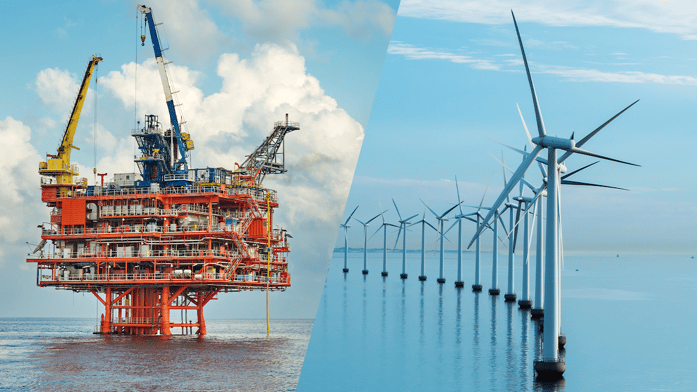
Cognite's CEO, John M. Lervik, shares his take on what has changed when it comes to climate action in the industry. There’s a momentum, an acceptance, and a global movement at play today — one that wasn’t there just a few short years ago. Here're the things the industry needs to do in the short and long-term that will guide its actions and move it forward.
As we are (hopefully) entering the final stages of a pandemic, and as its long shadow fades, we are reminded that an even greater crisis looms. It’s one that will upend our lives on a much more dramatic scale than Covid-19 ever could.
While standing on the Ignite Talks stage just a few weeks ago, I knew the same thing was running through all our heads: there’s no time to waste. UN-backed reports, some as recent as this week, have given strong guidance and stern warning about the energy industry’s impact on climate.
Unfortunately, there is no switch to suddenly reach net zero overnight, which is why we need to lean on technology to support these industries to speed up their efforts — while keeping the lights on. This sense of urgency will surely be emphasized at the upcoming COP26 UN Climate Conference as well.
The role that industrial technology will play in mitigating climate change is still underestimated
There are many formulas out there for how to slow or even stop the warming of our planet. From the electrification of everything to the spread of renewable energy and the emergence of alternative fuel sources, many solutions to run the world without emitting carbon already exist. The challenge we all now face is making such solutions feasible on a global scale so that their impact is amplified as much as possible. Technology — the kind that doesn’t make headlines or go viral, but nonetheless makes things behind the scenes work better, run faster, and waste less -- is, as we say in Norway, the “red thread” that will tie everything together.
Digitalization advancing at an exponential pace is reaping tangible results in even some of the most challenging and polluting industries. The World Economic Forum predicted that digital technology could cut global emissions by as much as 15%, and in my mind, that percentage can be even higher when we use data to rewrite our climate future. But it won’t happen on its own. It’s industry’s time to get its act together, and there are a few key things I see us collectively tackling in the short-, mid- and long-term.
The short-term target is securing the right talent
There’s no agenda point of greater importance right now than getting the right people to drive our industrial transformations. Change is happening faster than we ever imagined. We will come to rely, more and more, on the digital natives, the fresh talents, and the deep experts, to support us in the journey ahead.
Now is the time to build diverse organizations in every sense of the word, to usher in new perspectives and new ways of thinking to accelerate innovation. It’s up to you to find the right mix of people to secure your spot in the industrial future.
The mid-term target is being agile enough to adapt
And that means working well with others. It will be challenging to meet your targets and succeed in your transformation if you remain an island. Partnership is key, along with the ability to admit when you’ve made a misstep.
Your success depends on collaboration skills and a willingness to pivot when things aren’t working. We are already starting to see some digital frontrunners emerging at the head of the industrial pack. Don’t get left behind because of an unwillingness to engage and a resistance to rerouting your course. Go ahead and pivot to take your place alongside the frontrunners.
The long-term target is to hold ourselves accountable
Everything we do in the short- and mid-term is about ensuring not only the health of our industries but the health of Earth as well. The climate change deniers of the world have been properly quashed and discredited, and we are finally in this together, working together to do better, be better, and behave better in an effort to slow down global warming. In this climate race, there are no do-overs. We only get one chance to do our part to transform our industries, reduce our emissions, minimize our footprints, and meet those aggressive net zero targets, all to ensure that our planet is still thriving once 2050 rolls around. That chance is now, and I’m hopeful that everyone is acting on it.